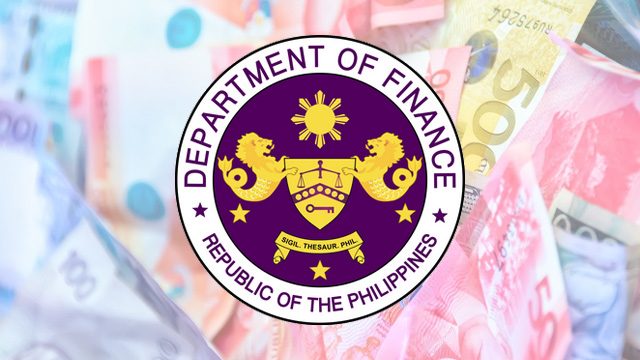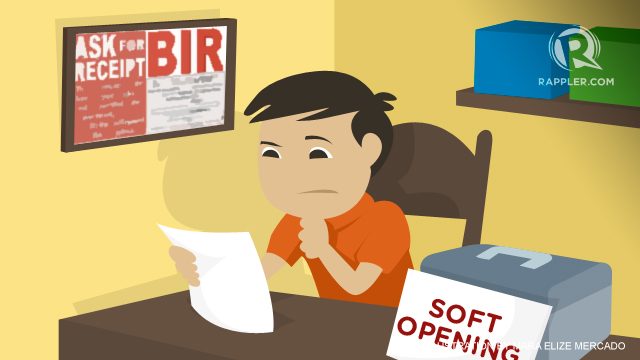SUMMARY
This is AI generated summarization, which may have errors. For context, always refer to the full article.

MANILA, Philippines – The Philippines is known to have one of the most complicated tax systems in the world. The World Bank reported that it takes about 185.6 hours to file taxes 28 times each year, placing the country 99th out of 190 economies in its 2017 Doing Business Report.
With the annual deadline for filing income tax returns on April 15 fast approaching and a tax reform package currently in the works, Rappler reviewed the tax landscape in the Philippines.
What are taxes and why do we pay them?
Taxes are funds used by the government to finance basic social services that are vital to the lives of citizens and economic growth. Every year, individuals and corporations pay government taxes, which are used to fund expenditures.
When government spending exceeds revenue collected, a budget deficit occurs. The government borrows money to cover this gap.
The loans are later on added as additional expenses for the country.
According to the National Tax Research Center, taxes collected have not been enough to cover total government expenditures since 1998.
Philippine Tax Law sources?
Philippine tax law was formulated based on the following sources:
- 1987 Constitution
The Constitution sets limitations on the exercise of the power to tax in the following articles:
- Article 6, Sections 27-29
- Article 8, Section 5
- Article 10, Sections 5-6, 186-187
- Article 16, Section 4
- Laws
The basic source of Philippine Tax Law is the National Internal Revenue Law, the latest version of which is the National Internal Revenue Code of 1997. It is also known as the Tax Reform Act of 1997, approved on December 11, 1997.
- Treaties
To avoid double taxation and prevent tax evasion, the Philippines is currently a signatory to 41 tax treaties.
- Administrative Material
The Secretary of Finance may implement rules and regulations for the effective enforcement of the Tax Code. These materials come in the form of revenue regulations, revenue memorandum orders, revenue memorandum rulings, revenue memorandum circulars, and BIR rulings.
- Local Government Tax Law
The Philippine Constitution grants local government units the power to create their own sources of revenue and to levy taxes, fees, and charges. The amount collected may be used to fund local projects and initiatives.
What are the types of taxes?
According to Philippine tax law, there are two types of taxes:
- National Taxes – paid to and imposed by the government, which include:
- Capital Gains Tax
- Documentary Stamp Tax
- Donor’s Tax
- Estate Tax
- Income Tax
- Percentage Tax
- Value-Added Tax (VAT)
- Withholding Tax
The Department of Finance (DOF) says that for every P100 contributed through tax, P60 is given to the national government while P40 is given to local governments.
2. Local Taxes – levied by local government units (LGUs) to source funds, which include:
- Basic Real Property Tax
- Franchise Tax
- Business of Printing and Publication Tax
- Sand, Gravel and other Quarry Resources Tax
- Professional Tax
- Amusement Tax
- Community Tax
- Annual Fixed Tax for Delivery Trucks and Vans
- Barangay Tax
- Barangay Clearance
The Bureau of Internal Revenue (BIR) collects national taxes while local taxes are collected by LGUs. (READ: The taxes we pay)

Who pays?
The Tax Reform Act of 1997 says that the following have the duty to pay taxes in the country:
- Citizens: a citizen of the Philippines residing in the country is taxable on all income derived from sources within and outside the Philippines
- Nonresident citizens: a nonresident citizen is taxed on income derived from sources within the Philippines
- Overseas contract workers: a citizen who is working and deriving income from abroad as an overseas contract worker is taxed only on income derived from the Philippines
- Alien individuals: resident and nonresident alien individuals are taxed only on income derived from sources in the Philippines
- Domestic corporation: a domestic corporation is taxable on all income derived from sources within and outside the Philippines
- Foreign corporation: whether or not engaged in trade or business in the Philippines, a foreign corporation is taxable only on income derived from sources within the Philippines
However, the BIR exempts some individuals from filing income tax returns, such as minimum wage earners and those who are subject to “substituted filing”.
Tax Reform?
Since the end of the Marcos regime, there have been two major tax reform programs.
The first was the 1986 Tax Reform Program under the administration of former president Corazon Aquino. The second program – and the one currently in place today – was the 1997 comprehensive tax reform program under the administration of former president Fidel Ramos.
A third tax reform program is currently being pushed and seeks to address tax system inequality.
The proposed reforms seek to raise an estimated P600 billion in funds yearly. It also aims to post an annual growth rate of 7% over the next 6 years. (READ: Tax reform program to recast PH economic policy)
Current Finance Secretary Carlos Dominguez said at least 4 packages will be submitted to Congress and will contain amendments to gross personal income tax, corporate income tax, real estate property tax, and capital income tax.
Key components of the tax reform package include:
The new package seeks to increase the value of tax exemption to P250,000 from the current P10,000. Maximum tax rate will also be reduced gradually to 25% from 32%, except for highest income earners. (READ: Why PH has 2nd highest income tax in ASEAN)
- Broadening of VAT base
Removal of VAT exemptions except those covering senior citizens and people with disability.
- Higher fuel and automobile excise rates
- Reducing donor’s and estate tax rates
- Lifting of the bank secrecy law
- Issuance of electronic receipts or invoice by establishments
If passed, the tax reform will fund healthcare and education services, as well as infrastructure projects of the Department of Public Works and Highways.
The finance department submitted its first proposal to House representatives in September. Latest amendments to the propsal were submitted in January 2017.
According to congressional rules, tax measures must pass through the House of Representatives before reaching the Senate for scrutiny. –Rappler.com
Add a comment
How does this make you feel?
There are no comments yet. Add your comment to start the conversation.